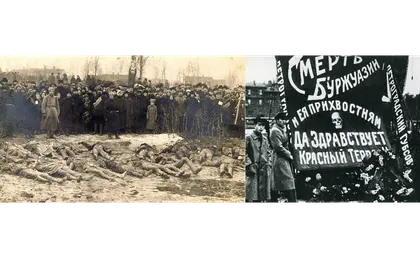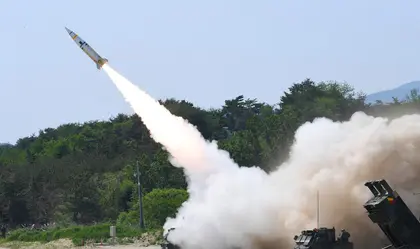Standing at one of the gates in Berlin’s Brandenburg Airport on a Sunday afternoon, I am haunted by what my Ukrainian friend Alla asked at dinner the other day: “Why are Ukraine’s best dying?” It sounded both like a reproach as well as a question.
At the Berlin Airport, people seem to be unaware that there is a war going on in Europe. Contented tourists on their way to or from holiday destinations seem out of place. It gives rise to rather mixed feelings while queuing, especially about the future. But not for most here. Not as long as the warm summer weather lasts and it’s possible to get away for a while after the long pandemic years. In their minds they are already away – from the plague creeping in from the east. It does not speak to them. Why not?
A certain numbness has arrived after long years of crisis. Yet crisis is a phenomenon that inevitably accompanies life, and the numbness might be a necessary psychological defense mechanism for overcoming a prolonged crisis. Still, it feels inappropriate.
What is the crisis?
Could it be the war? Certainly, but as long as it is not perceived or experienced, it is a crisis that will disappear if the individual turns his back. There is no war at this airport, and the tourists on the Spree, sailing along in a happy mood on their boats, do not have to pass any ruins. Meanwhile, the fact that people who were also once happy are now dying to defend German freedoms and values as well as their own remains distant.

Inside the South Korean Weapons Factory That Could Supply Kyiv
One could argue that crises and wars have always accompanied humanity and are therefore a normal part of human existence. But unlike in antiquity, modern inventions are capable of creating existential crises involving entire nations, not to mention the entire world. This is not something to be proud of. Yet every now and then, wars are unleashed, with some seeking to destroy, others to protect and preserve, and still others to create something new.
The best have always played a leading role in these crises. Those who would later be characterized by friends, neighbors, colleagues, generals and even foreigners, as people who instilled a faith that we would win. And this is the greatest gift they have given to both of our countries.
The same best who stopped the Red Army under Tallinn (1919) and its current iteration in Kyiv (2022) are the ones who volunteered at the most critical moment to save the day. To give a chance to others, loved ones, but also to those farther away who do not yet want to realize the seriousness of the crisis. These are the people whose deeds leave their mark on history like water on a stone, with phrases like Kniefall von Warschau (in homage to the Warsaw Ghetto Uprising) and bringing former adversaries to their knees even without rising from the grave.
Estonia has its Buchas and Irpins too
You just don’t know about them, or maybe we didn’t know how to talk about them. The Red Terror is a timeless and integral part of Russia’s cultural heritage, which reeks of fascism these days like the crematoria of Auschwitz and Mariupol.
The contribution of the best and brightest is unavoidable, because it is not possible to build a sovereign state on biomass. Russia is a perfect example of trying to find quality in quantity. Yet the fate of even the grandest sandcastle is to go with the flow.
The quality of the defense forces can be compared to the foundations of a country. Iron is added to concrete to reinforce it. Yes, it will soon disappear into the concrete mass without a trace. These are the heroes we will commemorate. These are the very same people who are giving their lives in Ukraine today, iron in the foundation.
In order for Estonia to appear and remain on the map of Europe, 6,127 of its best sacrificed themselves. Twice as many endured wounds to the end of their lives. The memory of their sacrifices and their stories are also the iron that holds the foundations of our country together. I know, my grandfather was one of them.
Without victory there is simply no future
Coming back to Alla’s question at the dinner table … neither of us knew the answer. We also remain unaware of the true emotions and difficulties – from the opposition of parents, loved ones and friends to the shortage of heavy weapons – that today’s best, as well as the foreign volunteers, want and have to face. Every best, every hero’s story, and every journey is different. But with Alla, we never doubted for a moment how this story would end. Victory, of course. Anything else is just not conceivable, sensible or moral – without victory there is simply no future.
The existential crisis into which Ukraine has been plunged by the Red Terror (again) is a common one and affects us all. We must talk about things frankly – this is a war against the whole of Europe – today in some Ukrainian oblast, tomorrow in some Estonian county, and by the end of the week (again) in the suburbs of Berlin. Close your eyes or turn your back, but the reality will not change.
The best never die
“Why are we the ones losing our best in this war?” It’s an emotionally heavy subject and a burden to bear, both for her and for millions of others. I wish I had said to Alla – the best never die, they will be remembered forever. Estonia is no exception, where the memorials to those who fought and died for Estonia were restored after the end of the Russian occupation in the 1990s. We restored the memory that Russia tried in desperation to destroy at all costs. Why? Because an occupying terrorist is afraid of the best, even when they come from the grave.
Although some of the best have died for their country, they are heroes and role models, like the reinforced concrete foundations on which today’s and tomorrow’s Ukraine rests. Their sacrifice will be equally appreciated not only in Ukraine or Estonia, but also in the rest of Eastern Europe and in our common space of values across the globe. That is why we send you what your best really need, not mattresses and blankets. Glory to our common heroes!
You can also highlight the text and press Ctrl + Enter






